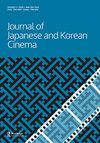福岛核事故后的日本电影
引用次数: 2
摘要
福岛核灾难已经过去了8年多。如果有的话,那黑暗的一天给日本文化带来了什么变化?2011年地震发生后,全国乃至全世界的人们都对大众媒体源源不断的信息感到震惊;在深深的不安中,我们中的许多人惊慌失措,完全不知道我们应该做什么。在3/11之后,Ōnuma Yūji,他在1988年还是一名小学生时提出了现在已经过时的座右铭“核能是光明未来的能源!”的口号改写为:“核能:无法控制的能源”或“光明的未来——一旦我们放弃核能”。他对一场无法挽回的灾难的强烈反对取得了成果,使许多人摆脱了核能是安全的神话。但与此同时,我在这种回应中感到一种令人不安的绝望。这样问不是更好吗?我们怎样才能以这样一种方式生活,从而获得真正的“光明未来”?在福岛核事故之后,这些文章中讨论的日本电影人一直在寻找这个问题的答案。考虑到自福岛事故以来拍摄的电影,有一件事是明确的:每一部电影都采取了一种政治立场,试图创造批判意识。但是,当我们谈到“批判性意识”时,我们必须对什么样的现象进行更批判性的思考?1949年,马丁·海德格尔(Martin Heidegger)在不来梅(Bremen)发起了一系列名为“洞察现状”的讲座。在这些演讲中,海德格尔揭示了他的技术哲学理论,概述了他对(当时的)现代科学和技术的本质的深刻怀疑——特别是对-à-vis核能的怀疑。现代科学和技术的根源是他所谓的“框架”,一个巨大的包罗万象的系统,它融合了人类、自然和其他存在的一切,根据海德格尔的说法,最终导致虚无主义。在海德格尔关于现代科学技术的神秘理论中,他对“危机”的本质提出了一个有价值的警告:“任何危机最关键的危险方面……危机的真实本质——它是一场危机——正在被隐藏”(海德格尔2003,71)。我认为,海德格尔技术理论的目标之一是唤醒人类的批判意识。福岛核事故是一个文明错误,一个已经发生且无法挽回的错误。然而,这很可能只是现代技术给我们带来的更大危机的一小部分。一场巨大的危机可能正在逼近,一场迄今为止一直隐藏在我们视线之外的危机,如果是这样的话,我们必须对这场危机进行深刻和批判性的思考。那么,这场巨大危机的本质是什么呢?我还不能用一个词来概括它,但是我做到了本文章由计算机程序翻译,如有差异,请以英文原文为准。
Japanese cinema in the wake of Fukushima
More than eight years have passed since the Fukushima nuclear disaster. What changes, if any, has that dark day spelled for Japanese culture? In the wake of the 2011 earthquake, people throughout the country and the world were alarmed by the information pouring from the mass media sources; in the grip of a profound unease, many of us panicked, utterly uncertain what we should do. After 3/11, Ōnuma Yūji, who in 1988 as an elementary school student came up with the now-outdated motto ‘Nuclear Power is the Energy for a Bright Future!’ rewrote the slogan: ‘Nuclear Power: Energy That Cannot Be Controlled’ or ‘A Bright Future – once we Abandon Nuclear Power’. His spirited opposition to a disaster that cannot be undone has borne fruit, freeing many from the myth that nuclear power is safe. Yet at the same time, I feel an unsettling hopelessness in this sort of response. Would it not be better to ask, how can we all live in such a way as to gain access to a truly ‘bright future’? In the wake of Fukushima, the Japanese filmmakers discussed in these essays have been in search of an answer to that question. In considering the films that have been made since Fukushima, one thing is clear: every single one of them takes a political stance that seeks to create critical awareness. But when we speak of ‘critical awareness’, about what kind of phenomenon must we think more critically? In 1949, Martin Heidegger launched a series of lectures in Bremen entitled ‘Einblick in Das Was Ist (Insight into That Which Is)’. In these lectures Heidegger unveiled his philosophical theory of technology, outlining his deep skepticism – particularly vis-à-vis nuclear power – toward the nature of (then-) modern science and technology. Modern science and technology are at root what he called ‘Gestell (Enframing)’, a huge all-encompassing system, which incorporates human beings, nature and everything else in existence, and that, according to Heidegger, leads ultimately to nihilism. Embedded in his arguably rather mysterious theory of modern science and technology, Heidegger offers a valuable warning to us today about the nature of ‘crisis’: ‘The most critically dangerous aspect of any crisis... is the fact the true nature of the crisis – that it is a crisis – is being hidden’ (Heidegger 2003, 71). I argue that one of the goals of Heidegger’s theory of technology is to awaken humankind’s critical awareness. Fukushima was a civilizational error, one which has already happened and cannot be undone. Yet it may well be only a small part of the larger crisis modern technology has unleashed upon us. An enormous crisis may be looming, one which until now has been hidden from our sight, and if so, it is that crisis about which we must think deeply and critically. What, then, is the nature of this enormous crisis? I have not been able to encapsulate it in a single word yet but have
求助全文
通过发布文献求助,成功后即可免费获取论文全文。
去求助
来源期刊

Journal of Japanese and Korean Cinema
Arts and Humanities-Visual Arts and Performing Arts
CiteScore
0.60
自引率
0.00%
发文量
16
期刊介绍:
Journal of Japanese and Korean Cinema is a fully refereed forum for the dissemination of scholarly work devoted to the cinemas of Japan and Korea and the interactions and relations between them. The increasingly transnational status of Japanese and Korean cinema underlines the need to deepen our understanding of this ever more globalized film-making region. Journal of Japanese and Korean Cinema is a peer-reviewed journal. The peer review process is double blind. Detailed Instructions for Authors can be found here.
 求助内容:
求助内容: 应助结果提醒方式:
应助结果提醒方式:


